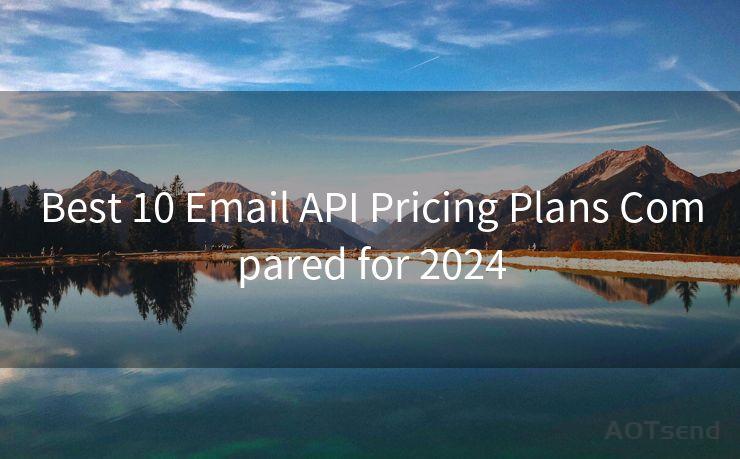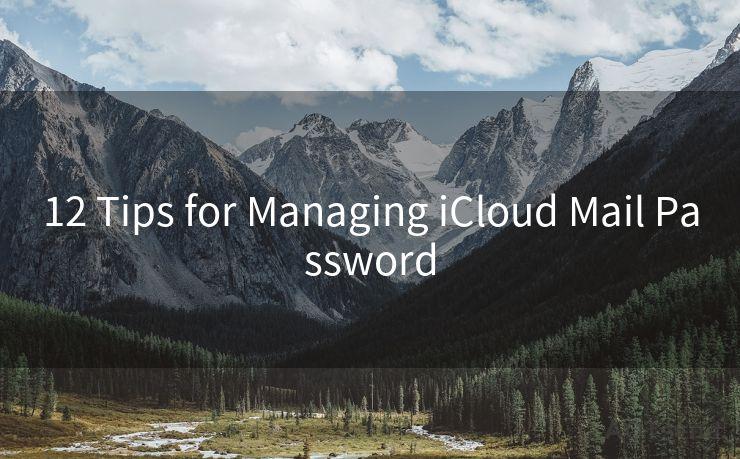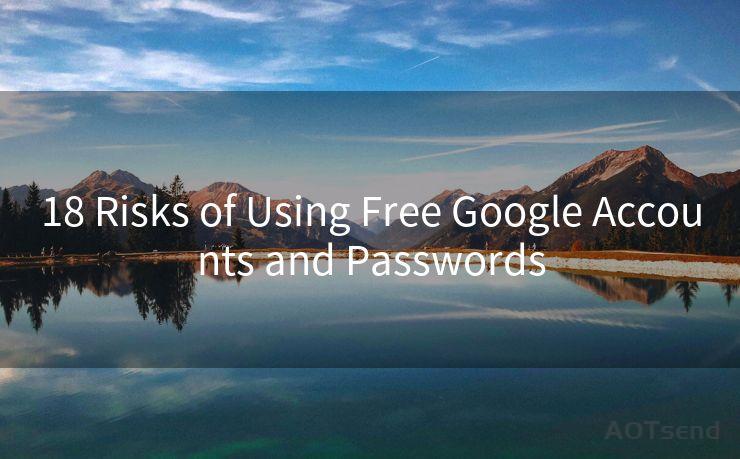17 Web API Send Email Best Practices




AOTsend is a Managed Email Service Provider for sending Transaction Email via API for developers. 99% Delivery, 98% Inbox rate. $0.28 per 1000 emails. Start for free. Pay as you go. Check Top 10 Advantages of Managed Email API
When it comes to sending emails via Web APIs, following best practices is crucial to ensure deliverability, security, and compliance. Here are 17 essential best practices to keep in mind when implementing email functionality through Web APIs.
1. Use Verified Email Addresses
Always send emails from a verified email address. This not only enhances the credibility of your emails but also reduces the chances of them being marked as spam.
2. Maintain a Clean Sender Reputation
Monitor your sender reputation regularly. A poor sender reputation can lead to email deliverability issues. Use tools and services to check and improve your sender score.
3. Follow CAN-SPAM Act
Ensure that your emails comply with the CAN-SPAM Act, which requires accurate header information, a clear and conspicuous unsubscribe option, and relevant subject lines.
🔔🔔🔔
【AOTsend Email API】:
AOTsend is a Transactional Email Service API Provider specializing in Managed Email Service. 99% Delivery, 98% Inbox Rate. $0.28 per 1000 Emails.
AOT means Always On Time for email delivery.
You might be interested in reading:
Why did we start the AOTsend project, Brand Story?
What is a Managed Email API, Any Special?
Best 25+ Email Marketing Platforms (Authority,Keywords&Traffic Comparison)
Best 24+ Email Marketing Service (Price, Pros&Cons Comparison)
Email APIs vs SMTP: How they Works, Any Difference?
4. Avoid Spam Trigger Words
Be cautious of using spam trigger words in your email content, subject lines, or even in the email address used for sending. These can increase the chances of your email being flagged as spam.
5. Optimize for Mobile Devices
With the increasing use of mobile devices, it's essential to ensure that your emails are optimized for mobile viewing. Use responsive email templates that adapt to different screen sizes.
6. Personalize Email Content
Personalization improves engagement. Use merge tags to insert recipient names, account information, or other relevant data dynamically into your email content.

7. Test Email Deliverability
Regularly test your emails for deliverability using various email providers. This helps identify and address any potential issues before they affect a larger audience.
8. Handle Unsubscribe Requests
Provide a clear and easy way for recipients to unsubscribe from your emails. Not only is this a legal requirement, but it also helps maintain a healthy email list.
9. Monitor Bounce Rates
Keep track of bounce rates and take prompt action to remove invalid or inactive email addresses from your list. High bounce rates can negatively impact your sender reputation.
10. Use Double Opt-In
Implement a double opt-in process for new subscribers. This confirms their interest in receiving emails from you and reduces the chances of sending unwanted emails.
11. Secure Your API
Protect your Web API endpoints with appropriate authentication and authorization mechanisms. This prevents unauthorized access and potential abuse of your email sending functionality.
12. Throttle Email Sending
Avoid sending large volumes of emails in a short period. Throttling your email sending helps prevent your messages from being flagged as spam due to unusual sending patterns.
13. Utilize Transactional Email Services
Consider using transactional email services for critical emails like password resets or account confirmations. These services often provide better deliverability and reliability.
14. Monitor Email Performance
Track key metrics like open rates, click-through rates, and conversions to assess the performance of your email campaigns and make data-driven improvements.
15. Handle Complaints Promptly
Have a system in place to handle and respond to email complaints promptly. This shows recipients that you value their feedback and are committed to improving your email practices.
16. Stay Updated on Email Standards
Keep up with the latest email standards and best practices. Email clients and spam filters are constantly evolving, so it's important to stay informed.
17. Implement DKIM and SPF
Use DomainKeys Identified Mail (DKIM) and Sender Policy Framework (SPF) to authenticate your emails and enhance deliverability. These technologies help verify the sender's identity and reduce the chances of email spoofing.
By following these 17 best practices, you can significantly improve the effectiveness and reliability of your email communications through Web APIs. Remember, email marketing is not just about sending messages; it's about building trust and providing value to your recipients.




AOTsend adopts the decoupled architecture on email service design. Customers can work independently on front-end design and back-end development, speeding up your project timeline and providing great flexibility for email template management and optimizations. Check Top 10 Advantages of Managed Email API. 99% Delivery, 98% Inbox rate. $0.28 per 1000 emails. Start for free. Pay as you go.
Scan the QR code to access on your mobile device.
Copyright notice: This article is published by AotSend. Reproduction requires attribution.
Article Link:https://www.aotsend.com/blog/p6582.html











